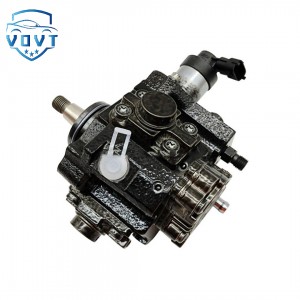Diesel Fuel Injection Pump 299050-0021 Engine Auto Engine Part
products description
| Reference Code | 299050-0021 |
| MOQ | 1 PCS |
| Certification | ISO9001 |
| Place of Origin | China |
| Packaging | Neutral packing |
| Quality Control | 100% tested before shipment |
| Lead time | 7~15 working days |
| Payment | T/T, Western Union, Money Gram, Paypal, Alipay, Wechat |
Study on Thermal Management and Efficiency Optimization of High-Pressure Oil Pumps Under Continuous Heavy-Load Operation
Abstract
High-pressure oil pumps used in modern diesel and gasoline direct-injection systems are required to operate under increasingly demanding conditions, including elevated temperatures, higher rail pressures, and prolonged heavy-load cycles. These operating environments can lead to thermal accumulation within the pump body, reduced volumetric efficiency, accelerated wear of sliding components, and even vapor formation in the low-pressure chamber. This study investigates the thermal behavior of high-pressure oil pumps under continuous heavy-load operation and proposes strategies for optimizing temperature distribution and improving overall efficiency.
The research begins by constructing a coupled fluid–thermal simulation model to predict heat generation mechanisms within the pump, including frictional heat at the plunger–barrel interface, compression-induced heating of fuel, and losses caused by leakage flow. Experimental bench tests are conducted to validate the model and measure key parameters such as pump-body temperature rise, plunger-seat thermal deformation, and efficiency degradation at oil temperatures between 40°C and 120°C.
Results show that excessive thermal accumulation significantly increases leakage, reduces peak pressure, and alters plunger motion due to thermal expansion. To address these issues, multiple optimization strategies are proposed:
-
Enhanced internal cooling channels designed to improve heat transfer from the plunger chamber.
-
Low-friction coatings such as DLC to reduce sliding heat generation.
-
High-temperature-resistant elastomers to maintain sealing performance at elevated temperatures.
-
Optimized fuel recirculation structures that enhance convective cooling without increasing pump drive torque.
Simulation and experimental comparisons indicate that combining these measures can reduce peak pump temperature by 12–18°C and improve volumetric efficiency by 8–12% under heavy-load conditions. The study demonstrates that thermal management is a key factor affecting the performance and durability of high-pressure oil pumps and provides an engineering basis for the design of next-generation high-efficiency pumps.

























